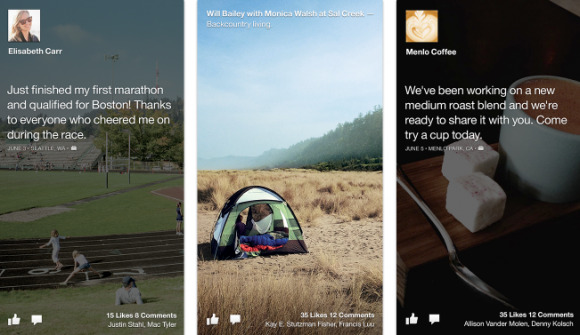Facebook Home is Facebook's second chance at wowing the mobile industry
Back in 2010, when the mobile industry was rapidly rising in innovation and technology, Facebook and Mark Zuckerberg decided to create a mobile app for its social networking service that could work universally on all mobile operating systems. At the time, it seemed like a great idea, however, it was "probably one of the biggest mistakes we've ever made," Zuckerberg tells CNN. Initially, Zuckerberg believed that standalone mobile apps was just a fad that would disappear, and that people would primarily just surf the web via their smartphones.
Unfortunately for Zuckerberg and Facebook, the complete opposite happened. People preferred using standalone apps, and because Facebook put the least amount of effort into its mobile app, it garnered terrible ratings in the Apple App store, as well as the Android Market. This was a wake-up call for Zuckerberg, who restructured his company to be more of a mobile-centric company. He placed mobile developers in each product team, and in order for Facebook teams to make their product appeal to Facebook managers, they had to make their products mobile-friendly.
Facebook ended up throwing out its iOS app completely, much to the reluctance of Zuckerberg. Cory Ondrejka, a mobile engineer for Facebook, told Zuckerberg that the company needed to spend a whole year to build the iOS app from the ground up. The app would retain the same design as the old app, however, unlike the old app, the new one would actually be usable. While Zuckerberg was initially hesitant of the idea, he was pleasantly surprised when the app released in 2012 and gained many 4-5 star ratings.

It was then when Zuckerberg and other Facebook executives knew that they had to primarily focus on the mobile aspect of the tech industry. Zuckerberg thought about creating a Facebook phone, however, he believed that the product would only reach 3% of Facebook users. That's when he decided to create Facebook Home. He wanted to integrate Facebook more deeply with both Android and Apple. However, because Apple's platform isn't very open, he decided to focus on Android.
He had designers and engineers find out all possible things on Android that Facebook could be integrated with. It started off with SMS text notifications, and then it expanded further and further. Zuckerberg said,
"We wanted to start off trying to rethink some of those core things and say, 'How could these be better if, instead of the current system you have, they were people-centric in all the themes that Facebook stands for?'"
Facebook Home integrates itself almost entirely over the Android OS. It takes over the lockscreen, launcher, and even the messaging features. According to CNN, Home is not just "another product release", but is "Facebook's opening salvo in the battle for dominance on the mobile web". Facebook plans on bringing Facebook-Home enabled phones to developing worlds where people are just now getting access to the internet. It plans on allowing people who purchase Facebook Home-enabled phones to have free data access for a set-period of time.
Zuckerberg wants to bring Facebook Home to the iPhone as well, however, he says, "We just can't today..." Zuckerberg also says that in the future, mobile ads will be coming to Facebook Home to help the company generate more revenue. Facebook Home is a giant step forward for the social network, however, so far it's still standing at a 2.5 star rating in the Google Play store, not what the company was hoping for. We'll see soon how Facebook will respond to the negative feedback its receiving for its new product, and if it will introduce updates to make it more appealing. Until then, be sure to check out our review of Facebook Home here.
[via CNN]
